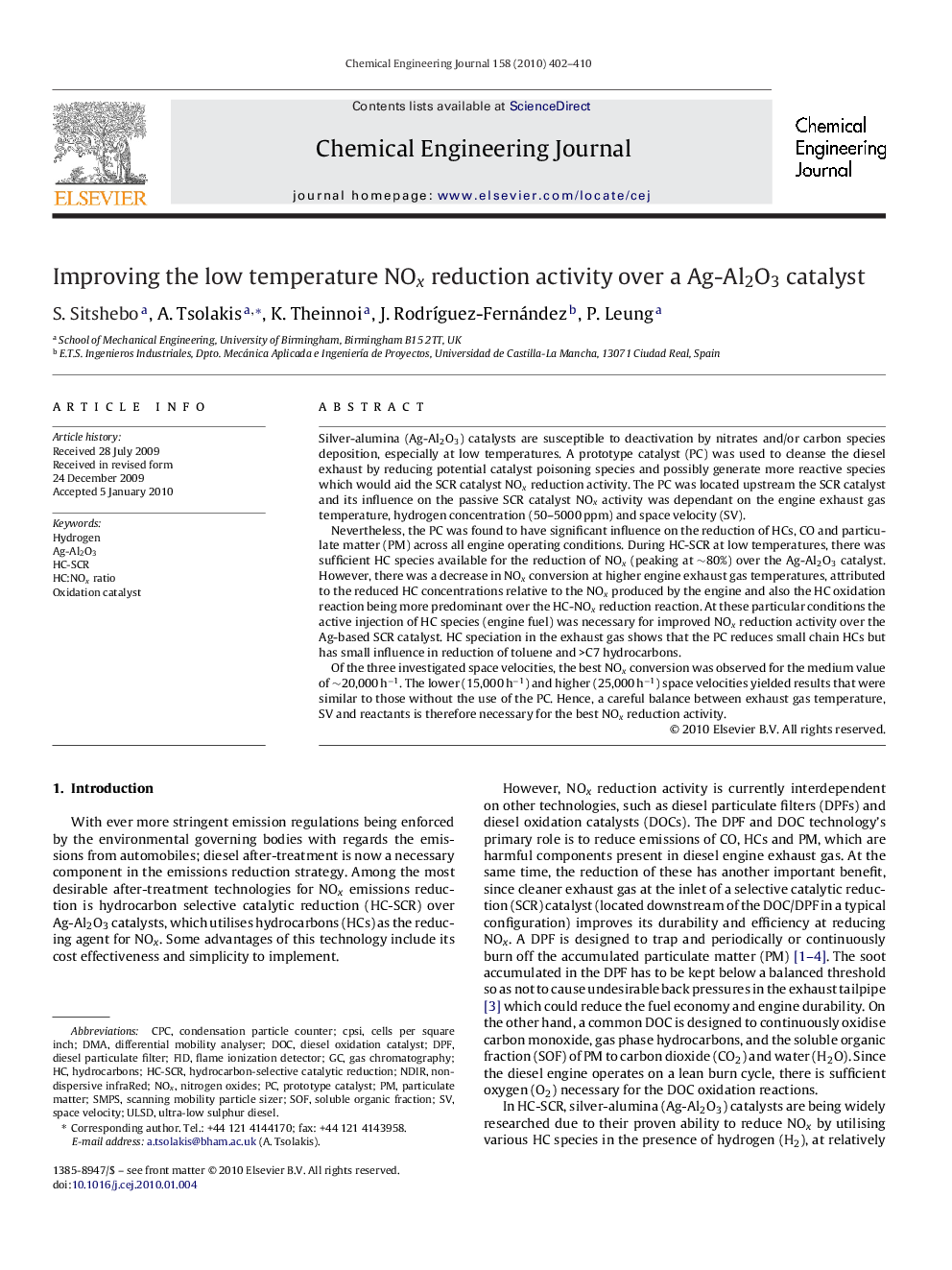| Article ID | Journal | Published Year | Pages | File Type |
|---|---|---|---|---|
| 151656 | Chemical Engineering Journal | 2010 | 9 Pages |
Silver-alumina (Ag-Al2O3) catalysts are susceptible to deactivation by nitrates and/or carbon species deposition, especially at low temperatures. A prototype catalyst (PC) was used to cleanse the diesel exhaust by reducing potential catalyst poisoning species and possibly generate more reactive species which would aid the SCR catalyst NOx reduction activity. The PC was located upstream the SCR catalyst and its influence on the passive SCR catalyst NOx activity was dependant on the engine exhaust gas temperature, hydrogen concentration (50–5000 ppm) and space velocity (SV).Nevertheless, the PC was found to have significant influence on the reduction of HCs, CO and particulate matter (PM) across all engine operating conditions. During HC-SCR at low temperatures, there was sufficient HC species available for the reduction of NOx (peaking at ∼80%) over the Ag-Al2O3 catalyst. However, there was a decrease in NOx conversion at higher engine exhaust gas temperatures, attributed to the reduced HC concentrations relative to the NOx produced by the engine and also the HC oxidation reaction being more predominant over the HC-NOx reduction reaction. At these particular conditions the active injection of HC species (engine fuel) was necessary for improved NOx reduction activity over the Ag-based SCR catalyst. HC speciation in the exhaust gas shows that the PC reduces small chain HCs but has small influence in reduction of toluene and >C7 hydrocarbons.Of the three investigated space velocities, the best NOx conversion was observed for the medium value of ∼20,000 h−1. The lower (15,000 h−1) and higher (25,000 h−1) space velocities yielded results that were similar to those without the use of the PC. Hence, a careful balance between exhaust gas temperature, SV and reactants is therefore necessary for the best NOx reduction activity.
